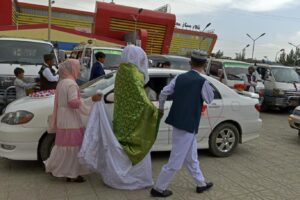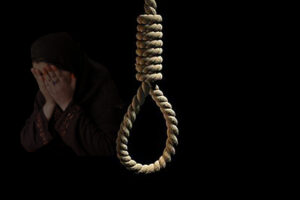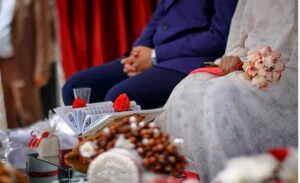KABUL (SW) – After one year of the Islamic Emirate rule in Afghanistan, Afghan women are still living under a lot of restrictions and misery.
Human Rights Watch officials say that the past year has been a terrible year for Afghan women.
“The Islamic Emirate is of the opinion that there is no place for women in public life and the only acceptable place for women is the home and having children and this is a violation of international laws.”
Shahrzad Akbar, head of the disbanded Independent Human Rights Commission of Afghanistan, which operates outside the country, told Salaam Watandar that the past year has been a dark era for Afghan women in the modern history of Afghanistan.
Referring to the restrictions imposed on women in the caretaker government of the Islamic Emirate, she added that women are completely deprived of the right to work, education and participation in society in the first year of the Islamic Emirate’s government.
According to her, the Islamic Emirate has not made any efforts to improve the situation of women in Afghanistan.
On the other hand, Masouda Karkhi and Raheel Tehla, two women’s rights activists in Kabul, told Salaam Watandar that Afghan women were removed from the scene in the past year and lost the achievements of the last few years. They said the one-year Islamic Emirate system ruined a lifetime for women in this country.
According to these two women’s rights activists, the restrictions imposed by the Islamic Emirate on women have had destructive effects and a number of women have fallen into depression. They see the future of Afghan women as dark and hopeless.
The Islamic Emirate had promised to reopen girls’ schools above the sixth grade at the beginning of this solar year, but Aziz Ahmad Rayan, the spokesperson of the Ministry of Education, in a conversation with the media, has said that the schools will remain closed.
In continuation of these restrictions, the Ministry of Enjoining the Good and Prohibition of Evil issued an order earlier this year, according to which men and women cannot go to the recreation centers at the same time.
A day after that, Zabihullah Mujahid, the spokesman of the Islamic Emirate, wrote on his Twitter that women cannot travel abroad without ‘Muharram’ (male companion). This was not the end of restrictions against Afghan women.
Later, the Islamic Emirate issued another order regarding the hijab. In this order, it is emphasized that women should cover their faces in public. Just a few days after this order, another order was issued. This order targeted female media presenters. According to this order, female presenters in TV shows have to cover their faces after this.
In the first days of its establishment, the Islamic Emirate changed the Ministry of Women’s Affairs to the Ministry of Enjoining the Good and Prohibiting the Evil, and women’s rights activists reacted to this decision by the Islamic Emirate, removing this ministry, removing women from the society, and limiting the Islamic Emirate against women. They called it obvious cruelty.
We wanted to get the opinion of the spokesmen of the Islamic Emirate about the situation of women in the last one year, but during the past few days and today, we did not succeed in getting their opinion despite repeated calls.
This is despite the fact that after the Islamic Emirate regained control in Afghanistan, all institutions dealing with the status of women in Afghanistan were abolished. It should be remembered that there is no specific institution in Afghanistan that addresses women’s challenges.
ENDS






